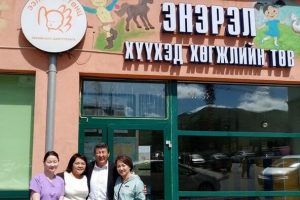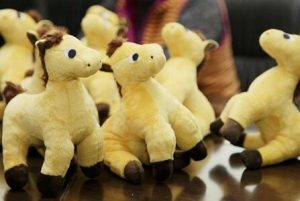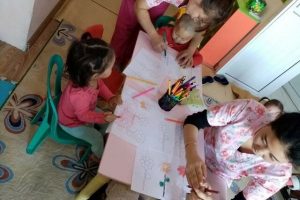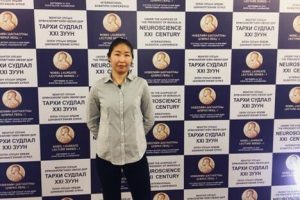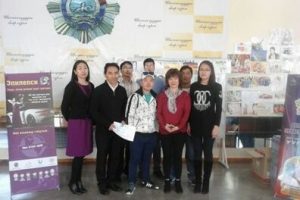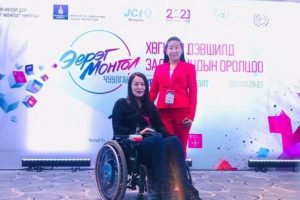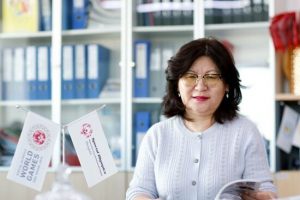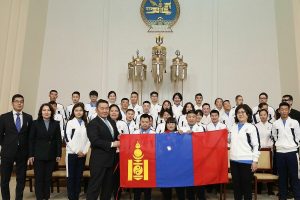By Julian Dierkes
Following the 2020 parliamentary and 2021 presidential election, there were some fears that the MPP’s electoral wins and occupation of all three highest offices would lead to some kind of one-party domination.
Most readers will recall then-Pres Battulga’s April 2021 warnings that Mongolia was about to descend into militarized one-party rule. Marissa and I didn’t think so at the time, and it doesn’t quite look like a one-party state at the moment. In fact, from all conversations that I’ve had this summer into the fall from afar and in Mongolia, with members of all parties and other observers, it seems that the MPP is struggling to make policy despite its huge parliamentary majority and occupation of the office of the president. By all accounts, this is what’s behind the late-August cabinet reshuffle as well, a move that has brought many MPs into cabinet again, but does not seem to be directed at any particular areas of policy-making.
Substantive Void at the Core of the Party System
What’s the challenge? One of the fundamental challenges that Mongolian democracy has been facing for some time, i.e. there are no politics in politics. The MPP has no ideological core and Mongolians did not vote for it on the basis of proposed or likely policies. This holds for all three individuals in offices, Pres. Khurelsukh, PM Oyun-Erdene, and Speaker Zandanshatar, but also for the party at large. If you have no direction nor political goals and neither does your party, then perhaps it is not so surprising that a super-majority is challenging to operate.
This is not limited to the MPP, of course. It’s hard to even say anything about the DP anymore. Kh Battulga and S Erdene both seem intent on sacrificing the party on the altar of their… what? Not political goals. After all, Battulga spent four years as president without a single identifiable policy goal. Erdene and his shenanigans involving party votes and stamps seem to be built primarily around his personal ambition despite a clear signal from voters in the 2021 presidential election that he is simply not electable. Some seem to hope that a more substantive, ideologically-motivated DP might arise from the ashes, but I’ll wait to see that to be convinced.
KhUN? Hints at liberalism and social democracy (not coincidentally, the two orientations that the DP and MPP pay some lip service to occasionally), but no coherent position beyond, “we’re different and potentially competent”, has emerged.
Practical Challenges
The 2019 amendments’ experiment of attempting to strengthen the power of the PM by limiting the number of MPs in cabinet and thus also promoting technical expertise, seems to have been deemed a failure. As I have argued in examining current proposals for further constitutional reform, we really haven’t had an opportunity to get a sense of the impact that these changes might have had, as they are being abandoned/amended again already. In the case of the maximum number of MPs in cabinet (double deel), this amendment had been struck down by the courts, but PM Oyun-Erdene could have still applied it. Instead, he re-populated his cabinet with MPs even for ministries where there was no obvious urgency driven by policy-challenges or underperformance of the minister.
Party Discipline
What is behind this and the lack of any agenda that is being pursued by the Oyun-Erdene government? In previous electoral cycles, party discipline had always been seen as a strength of the MPP. Once a leadership battle had been settled, the party leadership would be able to promote individuals within the party to become candidates for office and to count on them for support of legislative ambitions. That support was – apparently – rooted in the recognition that only a united party would be strong enough to stave off challenges from an opposition.
The fact that the current opposition poses no challenge has exposed the essential emptiness at the core of the MPP. Just like the DP’s fundamental raison d’être is to be opposed to state-socialism, authoritarianism, so the MPP is focused on being in power. But, in power for what? to do what?
What the PM thus seems to be struggling with and attempted to address in his cabinet reshuffle was the sense that MPs had few reasons to support his agenda. Party discipline goes out the window when the margin of the majority is so large that MPs may be looking out for their own re-election rather than supporting a government agenda.
There are two further factors that exacerbated this apparent breakdown of party discipline in parliament: weak ministers and the lack of resources that MPs have.
Ineffectual Non-MP Ministers
The intention behind the double deel constitutional amendment had been to make the role of ministers less political and more substantive. The hope was that the jockeying for a ministerial post (and the spoils that might come with that in terms of patronage, etc.) could be undercut by emphasizing ministerial competence. However, in the current parliament at least, the reputation of non-MP ministers has mainly been that they’re moderately competent, but entirely ineffective as they lack a parliamentary power base.
Would this be different if there were more opposition MPs? That’s hard to imagine since that opposition would be unlikely to side with a government minister only because she was competent. But, with a smaller majority in parliament, the PM might be able to lean on MPs to support the government and thus give leeway to ministers for substantive policy-making. That is not what the situation up until this summer was perceived as, however. MPs largely leaned back and ignored ministerial proposals and projects.
MPs’ Pet Projects
The extent to which MPs engage in pet projects has always been quite notable. One of the most obvious examples of this would be current speaker of the UIX, Zandanshatar’s deliberative polling. This was something that Zandanshatar picked up during a research stay at Stanford Univ where it is being pushed as an element of or upgrade to democracy. There’s much that recommends deliberative polling as an attempt to involve a greater number/variety of citizens (i.e. not professional politicians) in fundamental decisions. Yet, the implementation of such deliberative polls only makes sense when a majority of parliamentarians see the virtue of such a format and intend to support the results that it might deliver. And, the public would need to understand deliberative polling and be on board. Not only was the polling experiment conducted in Mongolia deemed flawed by some thoughtful observes like legal scholar O Munkhsaikhan, but it doesn’t seem like anyone other than Zandanshatar himself was particularly interested or even remotely committed to this exercise.
This appears to be relatively typical of parliamentarians’ initiatives; they rarely amount to much more than pet projects. MPs are thus often responsible for the actual drafting of legislation (though the Min of Justice also gets involved in some of the detailed work) and they do so not only without coordination from central party bodies (recall the lack of ideology or policy agenda I discussed above) or any apparent support for such initiatives. In a parliament with a super-majority they might then act as free agents on behalf of “their” projects and look for support directly from other MPs who might in return be seeking support for their projects.
Given this tendency towards legislative pet projects, it is perhaps no surprise that so many plans, agendas, and laws are poorly implemented as they may have been shaped in an MPs office without much benefit of consultation with the ministries/agencies implicated.
Of course, PM Oyun-Erdene’s Vision 2050 was supposed to combat this lack of implementation and out-of-control growth of pet project legislation. But then, he doesn’t seem to have the internal party power to really reign in his MPs and rally them to a government cause, though the recent cabinet shuffle may be an attempt to do just that.
One-Party Dominance?
All kinds of things might still happen during the remaining 20 months until the next parliamentary election, including a change of prime minister, but it does seem to me that in the current institutional context of Mongolia, a supermajority is not the obvious route to a one-party dictatorship.

 Follow
Follow